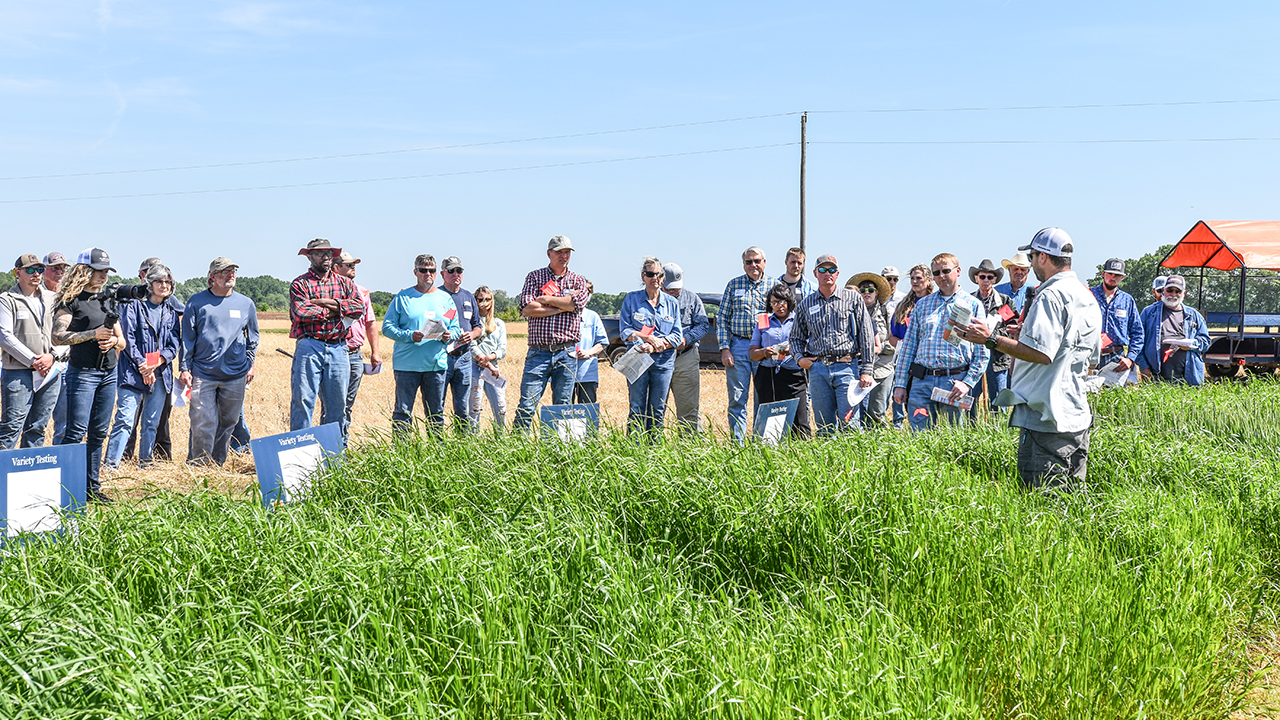Auburn University
Variety Testing Program

Variety selection is the most important decision a farmer can make. If farmers want to be successful, they must ensure that they plant varieties that are well adapted. If a farmer selects the wrong variety, the results can be catastrophic. Typically, farmers do not have the resources to conduct variety trials in addition to their normal growing season activities.
Variety evaluation is also critical to plant breeders, both from universities and industry. Prior to releasing a new variety, these breeders typically evaluate their lines in independent variety trials. This ensures that they have unbiased data from multiple years and locations to support the release of their new variety.
The mission of the Auburn University Variety Testing Program is to provide research-based, unbiased results on the performance of various crop hybrids, cultivars, and varieties to the agricultural community in Alabama. We are intent on conducting these trials in a manner that will result in maximum biological yield through methods common to the top-producing farms in Alabama.
We are committed to providing this information in a timely manner for its use during the decision-making process. The success of the program rests on our ability to help Alabama producers provide a safe, dependable source of food and fiber for all families as well as an economic sustainability for theirs.

Henry Jordan
Variety Testing Manager, Research Associate IV
Subscribe to AU Variety Testing Updates
Annually, the Auburn University Variety Testing Program conducts trials on corn, cotton, soybeans, peanuts, grain sorghum, wheat, barley, oats, triticale, small grain forages, and ryegrass.
Trials are conducted on Auburn University owned and operated agricultural research stations across the major geographical regions of the state. The research conducted at each of these locations can provide stakeholders with data that can be more representative of their growing conditions.
Wheat 1892
A. J. BONDUR NAN, Agriculturist.JAS. CLAYTON, Assistant Agriculturist. In 1890 the Agricultural Experiment Station began some experiments in wheat culture. Application for varieties of wheat, was made to the Agricultural Department at Washington, D. C., but only two...
Wheat 1892
A. J. BONDUR NAN, Agriculturist. JAS. CLAYTON, Assistant Agriculturist. In 1890 the Agricultural Experiment Station began some experiments in wheat culture. Application for varieties of wheat, was made to the Agricultural Department at Washington, D. C., but only two...
Corn, wheat and oats 1891
J. S. NEWMAN AND JAB. CLAYTON. Eighteen thoroughbred varieties of corn were planted, in plots, upon land practically uniform in productiveness. Four hundred pounds of cotton seed meal were broadcasted, per acre, before breaking the land. After breaking thoroughly with...
Cotton 1891
J. S. NEWMAN AND JAS. CLAYTON. An effort was made the past Spring to obtain as many varieties of cotton as possible, and twenty-nine were secured and planted on April 15th for the purpose of comparing their productiveness and yield and quality of lint.
Experiments with cotton, 1890
By WH Newman
Experiments with cotton 1890
J. S. NEWMAN-JAS. CLAYTON.Comparison of Varieties.Seven varieties of cotton were planted April 28th, 1890, for the purpose of comparing their productiveness, yield of lint from seed cotton and quality of lint. The Cook and King varieties were received from the...
